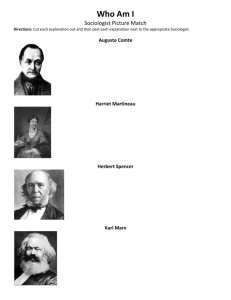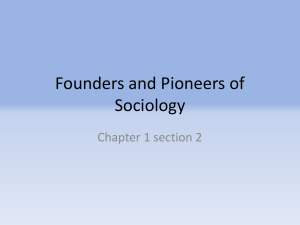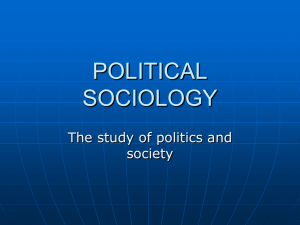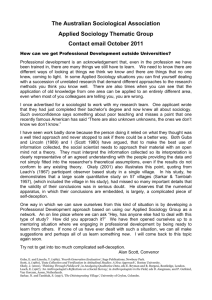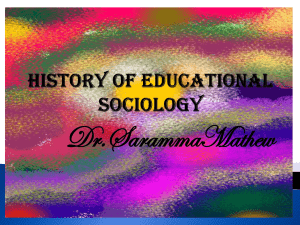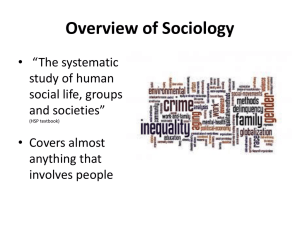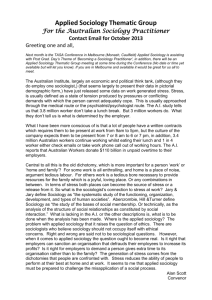Word - TASA
advertisement
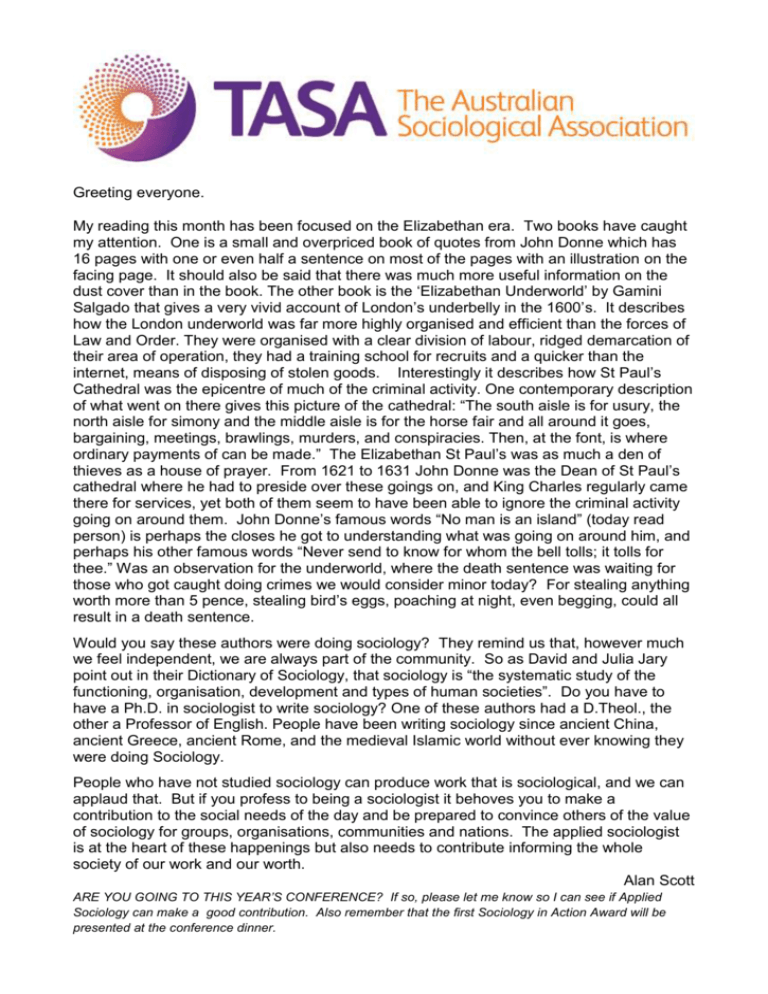
Greeting everyone. My reading this month has been focused on the Elizabethan era. Two books have caught my attention. One is a small and overpriced book of quotes from John Donne which has 16 pages with one or even half a sentence on most of the pages with an illustration on the facing page. It should also be said that there was much more useful information on the dust cover than in the book. The other book is the ‘Elizabethan Underworld’ by Gamini Salgado that gives a very vivid account of London’s underbelly in the 1600’s. It describes how the London underworld was far more highly organised and efficient than the forces of Law and Order. They were organised with a clear division of labour, ridged demarcation of their area of operation, they had a training school for recruits and a quicker than the internet, means of disposing of stolen goods. Interestingly it describes how St Paul’s Cathedral was the epicentre of much of the criminal activity. One contemporary description of what went on there gives this picture of the cathedral: “The south aisle is for usury, the north aisle for simony and the middle aisle is for the horse fair and all around it goes, bargaining, meetings, brawlings, murders, and conspiracies. Then, at the font, is where ordinary payments of can be made.” The Elizabethan St Paul’s was as much a den of thieves as a house of prayer. From 1621 to 1631 John Donne was the Dean of St Paul’s cathedral where he had to preside over these goings on, and King Charles regularly came there for services, yet both of them seem to have been able to ignore the criminal activity going on around them. John Donne’s famous words “No man is an island” (today read person) is perhaps the closes he got to understanding what was going on around him, and perhaps his other famous words “Never send to know for whom the bell tolls; it tolls for thee.” Was an observation for the underworld, where the death sentence was waiting for those who got caught doing crimes we would consider minor today? For stealing anything worth more than 5 pence, stealing bird’s eggs, poaching at night, even begging, could all result in a death sentence. Would you say these authors were doing sociology? They remind us that, however much we feel independent, we are always part of the community. So as David and Julia Jary point out in their Dictionary of Sociology, that sociology is “the systematic study of the functioning, organisation, development and types of human societies”. Do you have to have a Ph.D. in sociologist to write sociology? One of these authors had a D.Theol., the other a Professor of English. People have been writing sociology since ancient China, ancient Greece, ancient Rome, and the medieval Islamic world without ever knowing they were doing Sociology. People who have not studied sociology can produce work that is sociological, and we can applaud that. But if you profess to being a sociologist it behoves you to make a contribution to the social needs of the day and be prepared to convince others of the value of sociology for groups, organisations, communities and nations. The applied sociologist is at the heart of these happenings but also needs to contribute informing the whole society of our work and our worth. Alan Scott ARE YOU GOING TO THIS YEAR’S CONFERENCE? If so, please let me know so I can see if Applied Sociology can make a good contribution. Also remember that the first Sociology in Action Award will be presented at the conference dinner.



